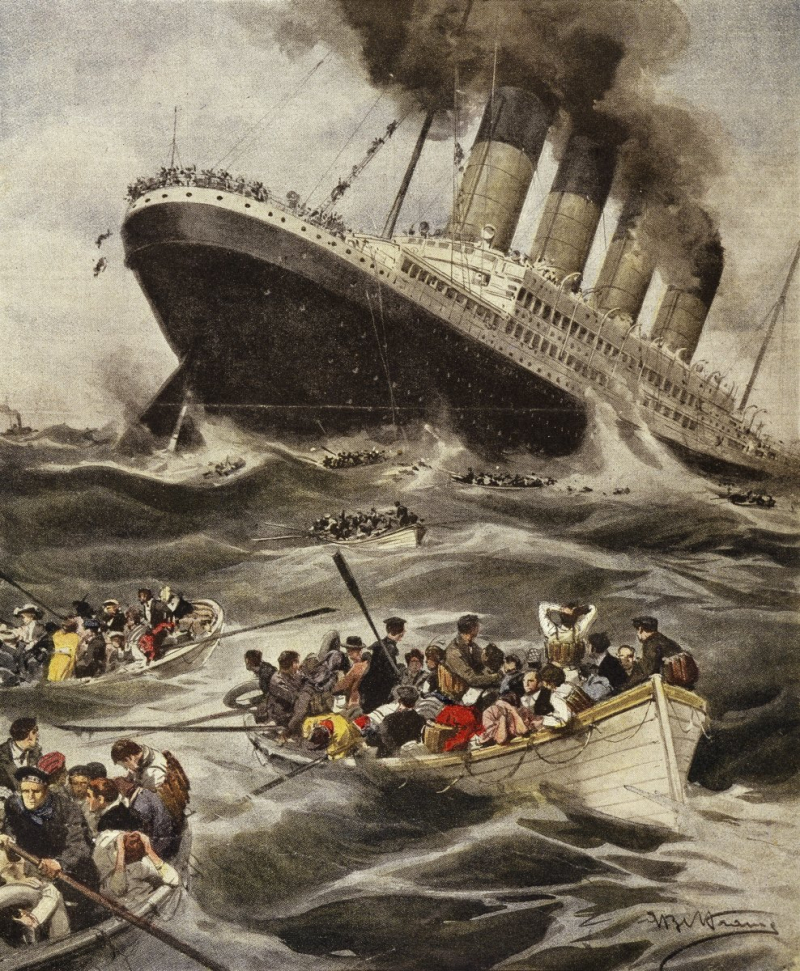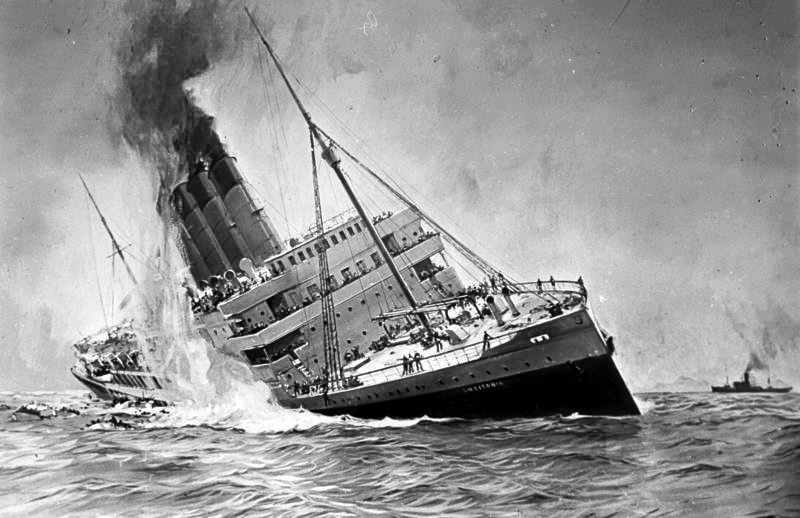RMS Lusitania was struck by a single torpedo
On May 7, 1915, the Lusitania was nearing the end of her 202nd journey from New York to Liverpool and was due to dock at the Prince's Landing Stage later that afternoon. There were 1,266 passengers and 696 crew members on board, for a total of 1,962 people. She was running parallel to Ireland's south coast, about 11 miles (18 kilometers) off the Old Head of Kinsale, when the liner passed in front of U-20 at 2:10 p.m. Because of the liner's high speed, some believe the collision between the German U-boat and the liner was purely coincidental, as U-20 could not have caught the fast vessel otherwise. There are differences in the speed of the Lusitania, which has been claimed to be traveling at less than full speed. The commanding officer of the U-boat, Walther Schwieger, gave the order to fire one torpedo, which impacted the Lusitania on the starboard bow, close beneath the wheelhouse. A second explosion exploded from within the hull of the Lusitania, where the torpedo had struck, and the ship began to founder much more quickly, with a prominent list to starboard.
After RMS Lusitania was struck by a single torpedo, the crew attempted to launch the lifeboats very immediately, but the sinking conditions made their use exceedingly difficult, and in some cases impossible, due to the ship's considerable list. Only six of the 48 lifeboats launched successfully, with numerous others overturning and falling apart. The ship fell down eighteen minutes after the torpedo hit, with the funnels and masts being the last to depart.
The British cruiser HMS Juno, which had only learned of the disaster a few hours before, departed her berth in Cork Harbour to assist. The calamity had spread over the world by the next morning. While the majority of those killed in the sinking were British or Canadians, the deaths of 128 Americans, including writer and publisher Elbert Hubbard, theatrical producer Charles Frohman, multi-millionaire businessman Alfred Gwynne Vanderbilt, and the president of Newport News Shipbuilding, Albert L. Hopkins, outraged many Americans.










